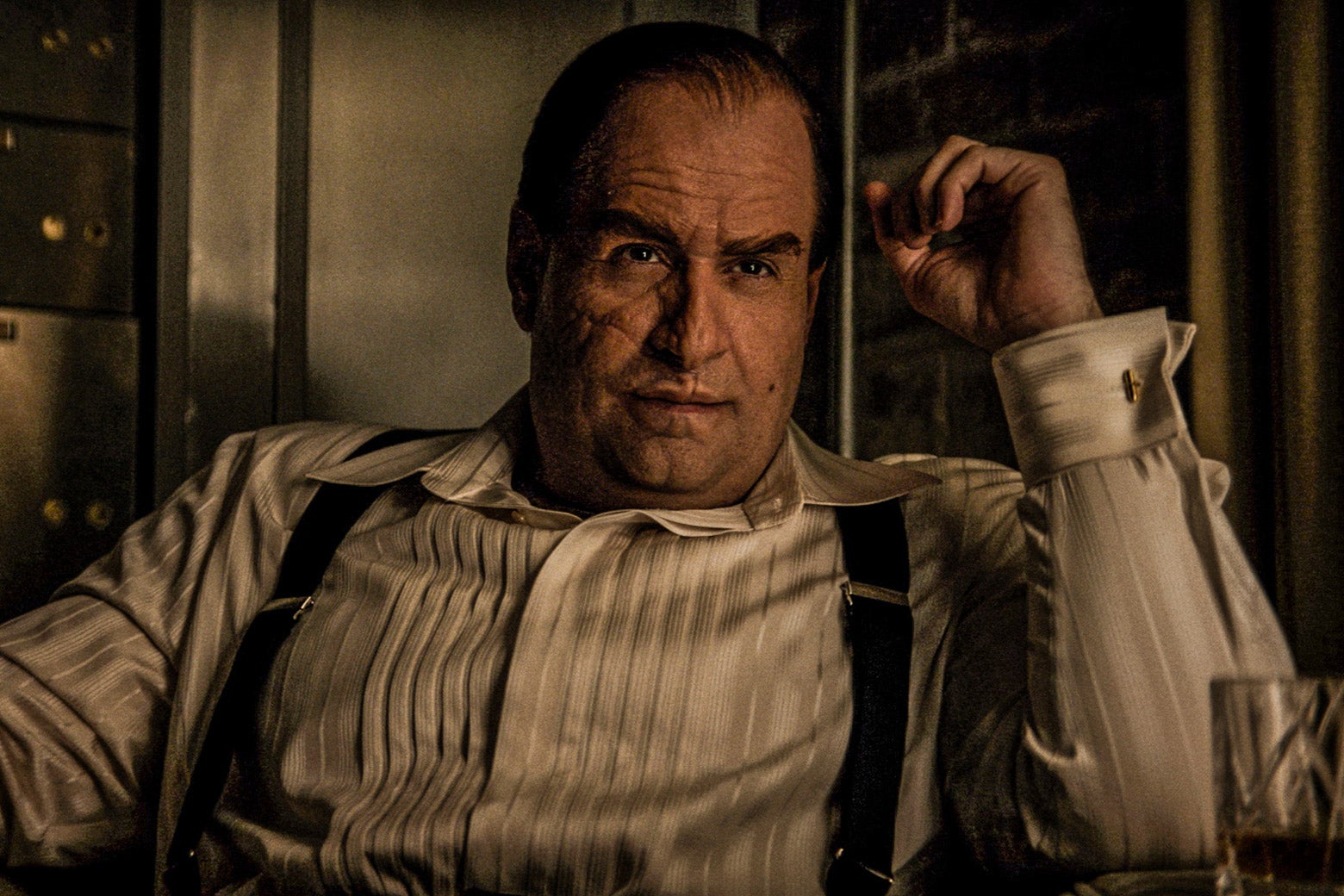HBO's Batman Spinoff Isn't Fooling Anyone

It’s impressive how little The Penguin cares about being a Batman show. In fact, one might wonder why it even bothers. This is a show that clearly prefers the mafia canon to the comic-book one, a thinly veiled excuse to do Scarface in Gotham City, or to imagine a version of The Godfather Part II that’s about Fredo. This may annoy some people, and please others—it is certainly different from the Marvel Cinematic Universe–style Easter egg hunts that audiences have been bombarded with over the past few years. But it’s also an odd duck, an HBO series that’s difficult to square with the network’s penchant for prestige—and, of course, its other (extremely famous) gangster epic.
The new series follows Colin Farrell’s heavily prosthetic reimagining of Oz “The Penguin” Cobb, in the aftermath of 2022’s The Batman. An opening montage reminds viewers about the state of things in Matt Reeves’ version of Gotham City, and the short version is: Batman kind of beefed it. The Riddler bombed the city, flooding its streets and turning its poorer districts into a disaster zone. City resources are stretched thin. And mob boss Carmine Falcone (John Turturro in the film) is dead, leaving a power vacuum in the underworld.
Batman and Bruce Wayne do not factor into this story. The many criminals of The Penguin do not seem to spare a thought for the armored man whose preferred pastime is beating the hell out of small-time crooks. This omission never stops being weird—I understand this version of the superhero is just getting started, but The Batman made it pretty clear that people in Gotham have at least heard of him. Furthermore, The Penguin leans into some of the comic-book ways of making it clear that Gotham is not simply a fictional New York, like the existence of a drug economy built around “drops,” the odd jaunt over to Arkham Asylum, and Riddler question marks tagged all over billboards. There are a hilarious number of scenes where characters walk by this very obvious comics iconography and proceed to behave as if they are not in a comic-book show.
There’s precedent for the genre trappings here. Many of the most popular and influential Batman comics are very much crime stories, like Frank Miller and David Mazzucchelli’s Batman: Year One, or Jeph Loeb and Tim Sale’s The Long Halloween and its sequel, Dark Victory—all of which inform The Penguin. Knowing this, it’s not hard to imagine a gangster saga that simply omits the Caped Crusader, detailing just what kind of corruption the hero is determined to root out, or how disruptive his arrival might be to a well-established underworld.
The Penguin skews toward the latter. Consistent with his characterization in The Batman, Oz Cobb is a shit-talker and schemer who sees an opportunity to scramble his way up from glorified drug dealer to true kingpin. He commands little respect—his nom de crime is meant as an insult said to his face—and also does not seem to be terribly good at much of what he sets out to do. But he is driven, moved by an undying rage at the world around him for overlooking him and denying him the power and opportunity he believes is his, and he has a knack for swaying other disgruntled men to back him in a struggle to take back what’s theirs. Batman might not be present, but he provided Oz with an opportunity, and he’s going to take it.
This is perhaps the most compelling thing about The Penguin: Through its characterization of Oz and his place in Gotham, it illustrates the seductive appeal of gangster stories, and suggests that maybe it’s not terribly different from what draws people to superhero fables. The toxic fandom inherent to both only underlines this. To that end, the show’s best character, and the reason why it all comes together so well, is a woman.
Sofia Falcone (Cristin Milioti) is an immediate threat to Oz’s ambitions. Recently released from Arkham, she is a surprise heir to the mob throne, an aspiring queenpin to parallel Oz’s criminal goals. Like Diane Keaton in The Godfather or any woman walking into an old patriarchal stronghold, she is immediately shut out by men who have power or want it—but continually finds ways to jam her foot in the door, frustrate plans, build her own empire. Across its eight-episode run, The Penguin takes time to examine both Oz and Sofia, to find the cracks in their psyches that give them the desire to warp the city to their own image, finding more to mine in their petty humanity than in their criminal acumen.
Here is where The Penguin most feels like The Sopranos, turning its attention to the damaged families that produce men like Oz or women like Sofia, and how the crime “families” they are part of reflect their gaping emotional needs. The comparison is an uncomfortable one, and impossible to avoid—a stark divide between the prestige TV of yore, when the phrase was coined, and what it looks like today. What previously described a subset of shows that stood in contrast to broadcast norms and sought to push boundaries has now become a formal standard, a mold ready to receive the IP tie-in that every high-profile media property must have now, even on HBO.
Yet there is a craft to The Penguin that makes it satisfying on its own terms, a dazzling work of IP brinkmanship with the devious aim of seeing how far you can take the Batman name for a ride while starving Batman fans of his presence. Like it or not, this is just how prestige TV is made now, but at least it can still be good.















































